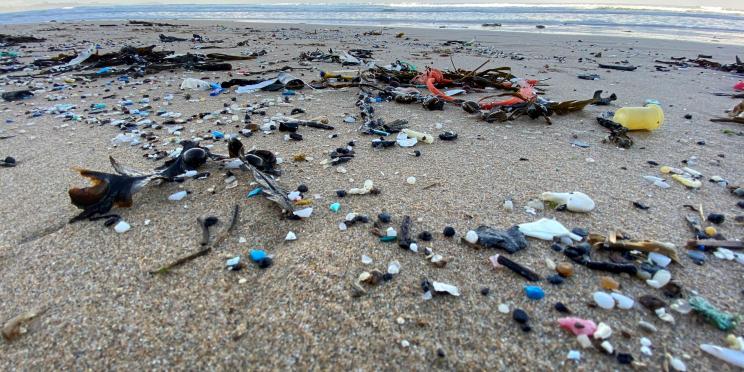Preventing Plastic Pollution promotes its Champions Network on Earth Day
22/04/2022

On the occasion of Earth Day on 22 April, Interreg project Preventing Plastic Pollution encourages citizens from the France Channel England area to set up a Plastic Champions Network in their organisation in order to inspire positive behaviour change.
The networks are part of Preventing Plastic Pollution (PPP), a €14.3 million Interreg France Channel England project which works in partnership with 18 organisations from across France and England. It seeks to understand and reduce the impacts of plastic pollution in the marine and river environment.
Tackling plastic consumption is particularly important on Earth Day, a movement of over 192 countries driving positive action for our planet and raising awareness of the need to protect Earth’s natural resources for future generations.
Up to twelve million tonnes of plastic enters the oceans every year according to research from 2015*. That is as much as a bin lorry every single minute. This plastic has many impacts on the natural world, including animal entanglement, being ingested by animals, and acting as a vector of transport for different substances.
Plastic consumption is part of the climate emergency. Plastic is made from fossil fuels such as oil and coal, and the high plastic demand relies on continued drilling for fossil fuels which release greenhouse gases.
Single-use plastic products account for 50% of all plastic produced. By challenging resource consumption behaviours, avoiding single-use items, and transitioning from a consumer to a citizen, everybody can contribute to reducing greenhouse gas emissions.
Originally launched by the Environment Agency, Preventing Plastic Pollution project partner, the Plastic Champions Network now connects more than 600 people passionate about fighting plastic waste across the UK.
In 2021, 1,034 volunteer hours were recorded, and 258 bags of litter were removed from the environment by plastic champions which set up more than 700 sustainable actions.
Due to the network’s success, the initiative has been replicated in English county councils as well as French organisations such as Preventing Plastic Pollution project partner LABOCEA. A ‘How to Guide’ to creating and sustaining an environmental network has helped LABOCEA start their own ‘Champions PPP’ network.
To date, the 24 registered members of LABOCEA’s “Champions PPP” network have collected 32 kg of waste, avoided at least 120 plastic water bottles (1.5L) per month by using tap water and reusable glass bottles. The network has focused on finding reusable alternatives to single-use plastic in the bathroom and kitchen, with ideas and tips like home-made yoghurt, which has led to a reduction of at least 204 yoghurt pots and lids every month.
The ‘How to start a network guide’ is open source and available to download in French and English to anyone willing to start making changes to reduce their own plastic footprint and empower others.
*Plastic waste inputs from land into the ocean, Jambeck et al, 2015
More information:
